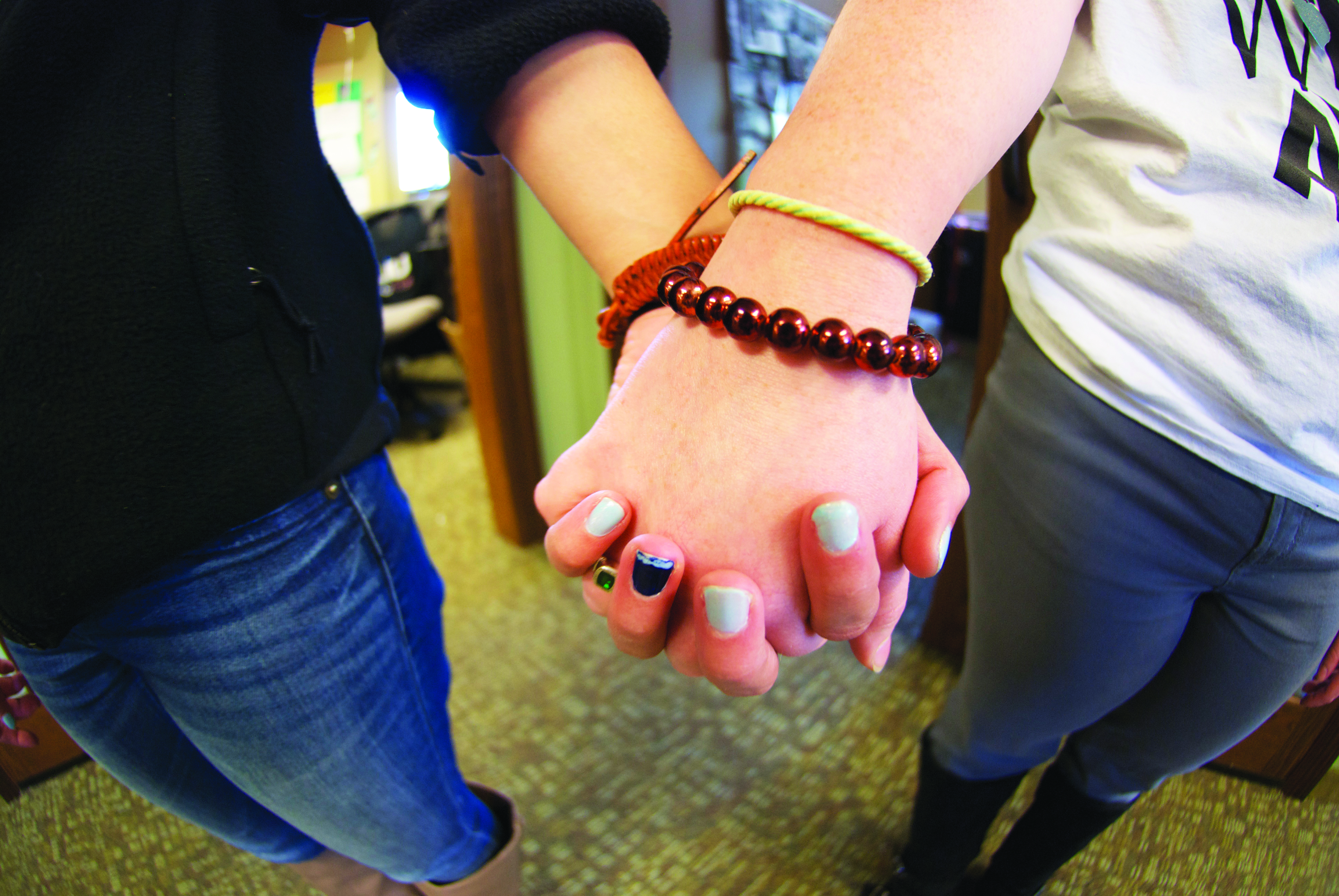By Alyssa Seidman
Co-Editor-in-Chief
Gone are the days where your significant other would pick you up at your parent’s house (after receiving their blessing, of course) for “the big night out,” which usually called for dinner and a movie. This seldom happens in the 21st century, for a new form of matchmaking has seeped its way into our mainstream culture: online dating sites.
Dating sites like Match and eHarmony are just two of the multiple online forums that allow singles to find love on the World Wide Web. Match, which is the world’s largest online dating site, uses an algorithm called Synapse to play cupid with virtual profiles. According to the article “Inside Match.com: It’s All About The Algorithm,” published on slate.com in July 2011, “the Match algorithm uses a variety of factors to suggest possible mates. While taking into account a user’s preferences, it also learns from their actions on the site. Synapse also uses ‘triangulation’; that is, the algorithm looks at the behavior of similar users and factors in that information, too.”

Where Match is the online equivalent to the classifieds by offering loads of “matches” on one screen, eHarmony offered a different dating site model, according to The Guardian article “The Algorithm Method: How Internet Dating Became Everyone’s Route To A Perfect Love Match,” published in Feb. 2014. Founded in 2000 by Neil Clark Warren, the site “promis[ed] to guide its users towards long-term relationships – not just dating, but marriage. [Warren’s] research on 5,000 married couples laid the basis for a truly algorithmic approach to matching: the results of a 200-question survey of new members (the ‘core personality traits’), together with their communication patterns which were revealed while using the site.”
The reliability of these dating sites warrants no excuse, however, for the hookup culture that has formed under the URL umbrellas of OkCupid and Tinder, two less credible Internet dating forums. There’s also the issue of being “catfished,” which is defined as luring someone into a relationship by means of a fictional online persona. So this begs the question: are online relationships feasible replacements for the traditional dating customs of yesteryear?
“It’s socially acceptable in this age since everything is online now,” said Lauren Lipari, a sophomore Radiology Technology major. “I also feel like it’s easier to date online because people are afraid to talk to each other in person. There’s a lot of reliable dating websites where people actually fall in love and aren’t [at risk of] being catfished,” she added.
Melissa Walk, a sophomore Psychology major, said, “It depends on which [sites] you use. We know there have been many cases of mistaken identity [online], which [can] result in harmful situations. This is caused by the amount of personal information we share on these sites without knowing exactly who we’re talking to. Using match.com or eHarmony is safer since they’re more credible sites.”
“Match and eHarmony are typically structured for people who want genuine relationships,” said Jack Thedinga, a senior Political Science major. “Then you have sites like OkCupid and Tinder which are geared more towards casual relationships or even hookups. I personally think the traditional websites do a great job; they bring people together who might never have met otherwise. It’s even gaining popularity with the 60+ crowd who have lost loved ones, or never had the time before.” He continued, “Overall, I think it goes both ways. You have some sites that are beneficial, and others that don’t really add anything to society.”
Jake Scotto, a senior Broadcasting major, said, “Online dating, in my opinion, should be a last resort type of deal. I personally don’t trust the whole concept of it. You don’t know who someone really is by reading their online profile, and they could be someone totally different when you first meet them.” He continued, “Ironically enough, although I don’t agree with it, online dating seems to be more and more prevalent in today’s society. As a wedding DJ, I always ask the couples where they first met, and around 50 percent of them say something like match.com or eHarmony.”
Personally, I feel that signing up for any of these sites is the equivalent of selling your soul to the digital dating devil. For research purposes, I created a faux profile on Match in order to get a feel for the process. I felt I had no control over what I was getting myself into as an algorithm was calculating viable matches for me based on my personal credentials and dating preferences. Also, it was in no way encouraging seeing that they ask for your “outer beauty” characteristics such as body type and race—shouldn’t my future S.O. take me the way I am? To me, attraction, love, and relationships aren’t dictated by someone’s curves or the color of their skin, but rather your attraction to their “inner beauty.” My Political Science professor said something philosophically profound about this in one of his lectures: that the body is simply wrapping paper for a person’s true gift—their soul.
In my opinion, dating websites are a double-edged sword. Although there’s the potential in finding “the one” (if you’re comfortably leaving the search up to an automated algorithm), online dating is detrimental to traditional relationships. Where the old dating culture placed emphasis on sustaining long-term bonds based on face-to-face interactions with people you were genuinely interested in, today’s dating culture encourages singles of the world to “click yes” and “swipe right.”



Be First to Comment